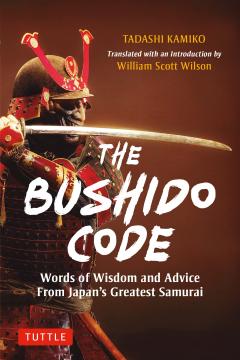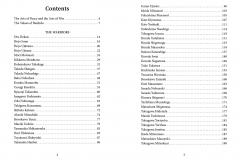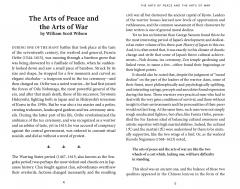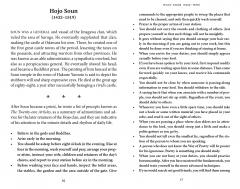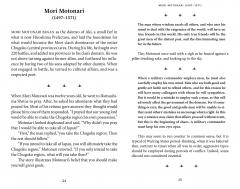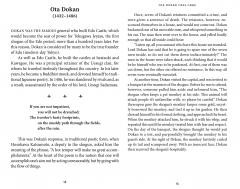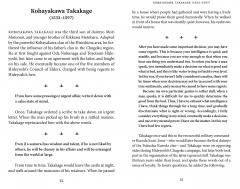Words of wisdom from great samurai leaders: A collection of inspiring essays and aphorisms from Japan's leading warriors
Samurai warrior leaders had to deal with grim conditions of life, death and survival. But such men were not simply rough uneducated fighters: they often personified the Far Eastern ideal of balancing cultural awareness and artistic expertise with high martial abilities. Their sayings, precepts and the anecdotes about them are informed by a broad spectrum of interests, many of which are still of great value today.
This book provides English translations of the essential thoughts and teachings of 55 great Samurai leaders--from Takeda Shingen and Oda Nobunaga to Shogun Tokugawa Ieyasu--the men who unified Japan and established a system of government that survived for generations
Advice in this book includes:
- You should not envy the swords and clothing of others.
- It goes without saying that you should arrange your hair early in the morning if you are going out to your work, but this should be done even if you are thinking of staying at home.
- When you think too much, it is difficult to achieve your objectives. If you are too clever and look too far ahead, you will accomplish nothing.
- If you have some pressing or urgent affair, write it down with a calm state of mind.
- Your regular meals should be light, and you should not take a trivial liking for elegant cuisine.
- If someone promotes only those things the lord finds acceptable, and never remonstrates with him at all, you should watch that man carefully.
- No matter how wise a person may be, you should never depend fully on him but rather, understand that you are always on your own.
Covering universal themes ranging from the courage and ambition to face daily affairs, the insights and strategies necessary to deal with allies and opponents, the value of art and literature, and even why and how to save money-- this is a book whose ancient wisdom is still highly relevant and of great value to readers today.
About the Author
Tadashi Kamiko (1920-2011) graduated from Chuo University in Chinese and Japanese classics. He also wrote books on Hagakure, Miyamoto Musashi, and the Saikontan (a Ming Dynasty classic).
Translated by:
William Scott Wilson was raised in Ft. Lauderdale, FL; he holds BAs from Dartmouth College and The Monterey Institute of Foreign Studies, and an MA from the University of Washington. He has worked as a translator and advisor on cultural affairs for the Japanese Consulate-General in Seattle, Washington; a teacher of Japanese language; and a guide for Japanese tourists in South Florida. He has had 20 books published, variously translated into 21 foreign languages, including The Lone Samurai: The Life of Miyamoto Musashi. His translation of Hagakure, an 18th century treatise on samurai philosophy, was featured in the film Ghost Dog, by the director Jim Jarmusch. Wilson was awarded a Commendation from the Foreign Ministry of Japan, and inducted into the Order of the Rising Sun by the Japanese Emperor.

